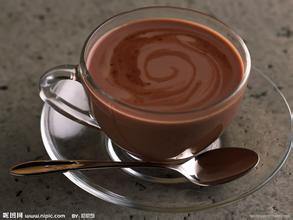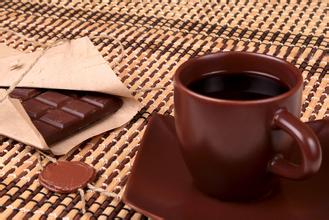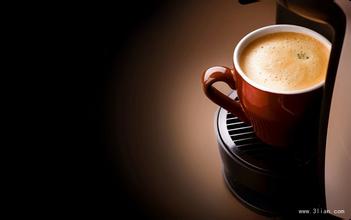Introduction to the characteristics of fine coffee beans in Rwanda coffee flavor and taste manor area
There are many mountains in Rwanda, which is called "the country of a thousand hills". The whole country is at a high altitude: the lowest point, the Luzizi River, is also 950 meters above sea level. The Midwest is dominated by mountains, which are part of the Aberdeen Rift Valley, which is part of the East African Rift Valley, extending from north to south along the western border of Rwanda. The highest mountain in the country is located in the volcanic chain of the Virunga Mountains in the northwest, of which Calisin is 4507 meters higher than the volcano, which is the highest geographical point in Rwanda. The mountain area in the western part of the country, located in the Aberdeen Rift Mountain Forest Ecological region, is between 1500 and 2500 meters above sea level. Central Rwanda is dominated by rolling hills, while the eastern border is made up of savannas, plains and marshes. [2]
Climate
Rwanda has a temperate and tropical plateau climate, and because of its high altitude, its temperature is lower than that of typical equatorial countries. The daily temperature in Kigali, located in the middle of the country, is generally between 12 and 27 °C, with small fluctuations throughout the year. There is also a large temperature difference in some parts of the country, with temperatures lower in the mountainous west and north than in the eastern low-lying areas. Rwanda has two rainy seasons each year, each from February to June and the second from September to October, while there are also two dry seasons, with a longer duration from June to September, often with no rainfall at all. the other lasts from December to February, which is relatively less serious than the previous one. Rainfall varies from region to region, with more rainfall in the west and northwest than in the east and southeast. However, the rainy season pattern has changed as a result of climate change. According to a report by Strategic foresight, the number of overcast and rainy days each year is sometimes smaller, but the rainfall is greater in a short period of time. In other cases, there will be frequent torrential downpours in a single day, more than in the past month combined. In addition, there are cases where the rainy season comes late or ends early.
Rwanda has been growing coffee since colonial times. Although the crops are mainly coffee, the quality of coffee produced in Rwanda is not outstanding, and its status in the coffee world is low, and few people pay attention to it. Most of the coffee varieties grown in Rwanda are bourbon. Rwanda, known as the "country of a thousand hills", has a high-altitude mountain environment, fertile volcanic soil and abundant precipitation, and has a climate conducive to the growth of coffee trees. The advantages of varieties and excellent natural conditions should have produced high-quality coffee, but why the quality of its coffee performance is not satisfactory? The reason lies in the later stage of processing. Improper handling will reduce the quality of coffee and sacrifice a lot of good flavor in vain. Harvesting, planting, treatment, grading, transportation and other links will directly affect the quality of raw coffee beans, in which the lack of control in a certain link will become a stumbling block to good coffee.
The coffee fruit needs to be transported to the processing plant as soon as possible after picking, but due to the lack of domestic facilities, it is unable to deal with the fruit at the first time. The fruits are piled up after being picked, which will continue to develop and accelerate mildew and decay due to lack of ventilation. Rotten fruits will affect the quality of coffee and show defective flavor.
In recent years, Rwanda has made great progress in the production and processing of coffee. First of all, coffee fruits are picked manually; coffee production cooperatives are set up all over the country to provide technical guidance to coffee farmers; coffee farmers send them to coffee processing stations for cleaning and screening as soon as possible after picking, and select mature and high-quality coffee fruits for processing.
In early 2003, UCR distributed Malaba coffee through the Sainsbury's supermarket in Sainsbury and sold it in its 350 stores until Red nose Day that year. In 2003, Abauzam Gump made a net profit of US $35000. Of this, 70 per cent is allocated to farmers at a price of US $0.75 per kilogram, more than three times the profits earned by other Rwandan coffee growers and enough to cover previously unaffordable health care and education services. The remaining 30% is invested in cooperatives and used to buy calcium carbonate, an agricultural lime that can reduce the increase in acidity of the soil due to the loss of minerals by rainfall.
Coffee and beer
Since 2003, when PEARL thought that the mode of operation was self-sufficient, it gradually reduced the financial support of the Abauzam Gambi cooperative. Cooperatives provide grower loans to help improve their living standards and can invest in livestock, health insurance and education. A cooperative bank opened in the village in March, allowing farmers to maintain and manage their deposits locally without having to trek to the city of Butare.
People revolved around the computers in the new telecom center in late 2004, when the London simultaneous Brewery (Meantime Brewery) began to offer coffee beer made from coffee beans produced by Malaba. The drink is identified as an alcoholic chilled cappuccino or digestif. After tasting coffee from all over the world, the chief brewer decided to add a small amount of vanilla and chocolate to Malaba coffee, which tastes better than nutty coffee and bitter coffee from South America. The original beer had an alcohol content of 4%, the same caffeine content as coffee and was described as "silky and mellow". Coffee and beer are sold in large branches in Sainsbury and in some bars and clubs. The drink is one of the only two Fairtrade-recognised beers in the UK market, and it was not until 2006 that it lost its Fairtrade status by reducing coffee rates and increasing alcohol content (now 6 per cent). Coffee beer is still made from Malaba coffee beans and is the only coffee beer recognized in the British Isles, and won the world beer cup coffee flavor beer gold medal in 2006.

Important Notice :
前街咖啡 FrontStreet Coffee has moved to new addredd:
FrontStreet Coffee Address: 315,Donghua East Road,GuangZhou
Tel:020 38364473
- Prev

Introduction to the characteristics of the manor producing area of Colombian boutique coffee beans with pure taste
After the founding of the United States, there was a dispute over the location of the capital. The North wants to locate its capital in New York. And the south wants the capital to be located in the south. In the end, the North and the South of the United States made a concession for the flag of Washington, D.C., to build a new city as the capital of the United States in the south not far from the north. The geographical location is provided by James Madiso (
- Next

Hawaiian Kona Coffee Flavor and taste introduction to boutique coffee beans in the manor area
The most famous university in Hawaii is the Hawaiian State University (University of Hawaii). Its main school districts are: Hilo, Manao and West Oahu. In addition, famous private universities in the state of Hawaii are: Brigham Young University in Hawaii (Brigham Young University-Hawaii Campus); located in Sandalwood
Related
- Detailed explanation of Jadeite planting Land in Panamanian Jadeite Manor introduction to the grading system of Jadeite competitive bidding, Red bid, Green bid and Rose Summer
- Story of Coffee planting in Brenka region of Costa Rica Stonehenge Manor anaerobic heavy honey treatment of flavor mouth
- What's on the barrel of Blue Mountain Coffee beans?
- Can American coffee also pull flowers? How to use hot American style to pull out a good-looking pattern?
- Can you make a cold extract with coffee beans? What is the right proportion for cold-extracted coffee formula?
- Indonesian PWN Gold Mandrine Coffee Origin Features Flavor How to Chong? Mandolin coffee is American.
- A brief introduction to the flavor characteristics of Brazilian yellow bourbon coffee beans
- What is the effect of different water quality on the flavor of cold-extracted coffee? What kind of water is best for brewing coffee?
- Why do you think of Rose Summer whenever you mention Panamanian coffee?
- Introduction to the characteristics of authentic blue mountain coffee bean producing areas? What is the CIB Coffee Authority in Jamaica?

